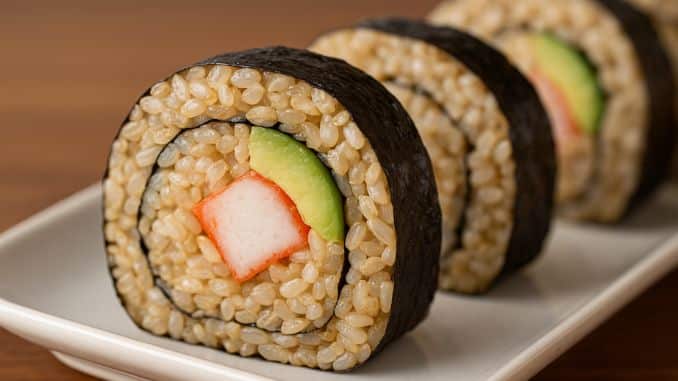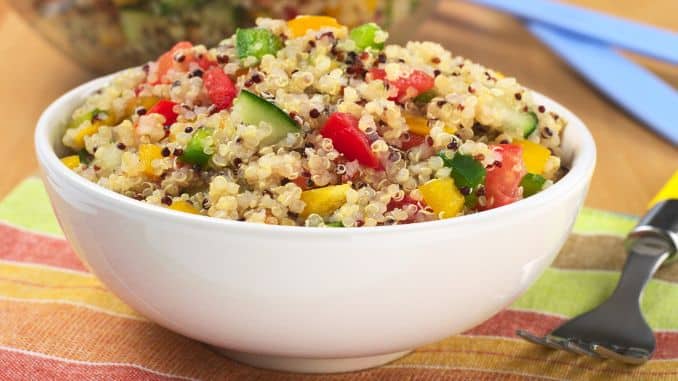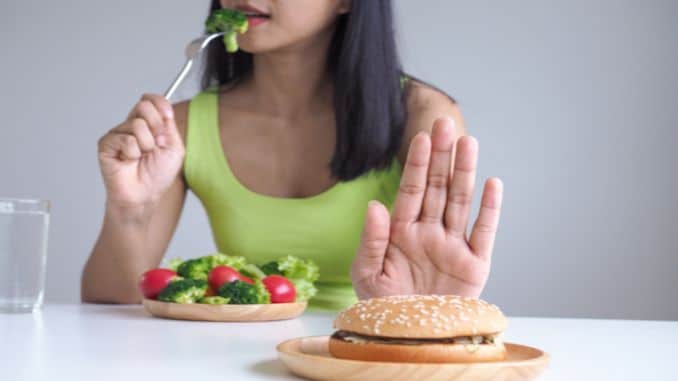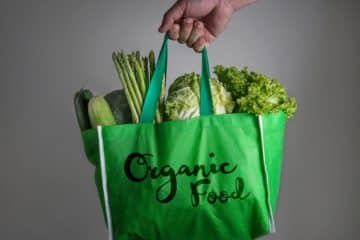Featuring Lori Kennedy, RHN | Interview by Rick Kaselj, MS
Trying to lose weight but not seeing results? You might be self-sabotaging your progress with food—even if you think you're eating healthily.
In this eye-opening interview, Registered Holistic Nutritionist Lori Kennedy reveals the common eating behaviors that derail fitness progress. From innocent sushi rolls to quinoa overload, she explains how self-sabotaging behavior often disguises itself as good intentions—and how it could be the reason you’re stuck.
Why does Self-Sabotage happen Around Food?

Self-sabotage around eating is more common than most people realize. Moreover, whether it’s skipping meals, binge eating on “healthy” snacks, or overloading on sugar-filled smoothies, many people unknowingly act against their success.
“At the core, self-sabotaging with food stems from confusion, emotional eating, and misinformation,” Lori explains.
This behavior often stems from:
- Low self-esteem
- Fear of success or failure
- Emotional triggers like stress, anxiety, or boredom
- A desire to cope with negative emotions through food
- Using food as a reward or source of comfort
“These common forms of sabotage can sneak into your routine subtly—through diet fads, over-reliance on meal replacements, or skipping meals to “save calories.”
Healthy Foods That Sabotage Weight Loss
Think you're making healthier choices? Think again.
Lori also highlights several “health” foods that often sabotage weight loss goals:
1. Imitation Crab in Sushi

Moreover, most people believe sushi is a clean, protein-packed choice. But that mock crab in your California roll? It contains mostly carbohydrates and added sugars, not protein. This imbalance spikes blood sugar and halts fat burning.
“If you’re only eating sushi rolls with imitation crab and salad, you’re essentially consuming a carb-heavy meal that lacks protein.”
2. Brown Rice in Sushi Rolls

Surprisingly, brown rice rolls may not be the healthier option. Additionally, many sushi chefs add butter to brown rice [2] to keep it soft and sticky. That “clean” brown rice roll could be packing hidden fats and calories.
3. Quinoa Overload

Quinoa is great [3]—when portioned right. But most people overdo it.
“One cup has 40g of carbs and just 6g of protein. Additionally, without an added protein source, it becomes a blood sugar-spiking meal.”
Overeating even healthy foods can become self-sabotaging behavior if meals aren't balanced with the right macronutrients. [1]
How to Stop Self-Sabotaging with Food?

Here’s how to help yourself—or your clients—stop getting in their way:
1. Understand Macronutrients
People often misclassify foods. For example:
- Peanut butter = fat (not protein)
- Yogurt = carbohydrate (unless it’s Greek yogurt, which is higher in protein)
- Fruit = carbohydrate
Educate clients on what each food contributes to their meal—this is the first step to making better choices.
2. Create a One-Page Macro Guide
Lori recommends a simple one-pager that sorts common foods into carbs, proteins, and fats. Additionally, this empowers clients to build properly balanced meals that fuel the body, stabilize blood sugar, and promote weight loss.
3. Avoid Marketing Hype
Foods marketed as “fat-free,” “high protein,” or “keto-approved” often come with additives, sugars, or fats that derail your progress. When in doubt, stick to minimally processed, single-ingredient whole foods.
Recognize the Signs of Food Sabotage
You may be self-sabotaging if:
- You eat “clean” but see no weight loss
- You snack constantly but never feel full
- You eat in secret or experience guilt after meals
- You’re afraid to succeed and revert to bad habits
- You procrastinate your grocery shopping or meal prep
- You feel overwhelmed by food choices and default to what’s convenient
“Self-sabotage isn’t always dramatic. Sometimes, it’s running late, skipping meals, or choosing the familiar urge to comfort eat instead of planning a balanced meal.”
Your Body Deserves Better

To succeed with your fitness and health goals, you need to become aware of your habits, break the cycle of self-sabotage, and treat your body with respect—not restriction.
Start by:
- Eating real, whole foods
- Tracking your meals for awareness—not guilt
- Prioritizing protein in every meal
- Supporting your emotional health
- Reaching out for help or guidance when needed
Final Thoughts from Lori
Stick to simple. If there’s a massive marketing campaign behind a food, think twice before eating it. Apples and cucumbers don’t have marketing budgets—and they’re great for you.
Want to Burn Fat and Feel Better in Just 7 Days? Check out our Best Foods that Rapidly Slim & Heal in 7 Days and uncover the shocking foods that melt fat fast and boost healing — download it now before it disappears!
FAQ's
1. What does self-sabotaging with food mean?
Self-sabotaging with food refers to behaviors where you unknowingly or unconsciously eat in ways that prevent weight loss or harm your health goals—like binge eating, emotional snacking, skipping meals, or constantly “starting over” on Mondays.
2. Can healthy foods cause weight gain?
Yes. Even nutrient-dense foods like quinoa, nuts, or sushi can sabotage your progress if portion sizes are too large or if meals are unbalanced. Just because a food is labeled “healthy” doesn’t mean it supports your goals when eaten without proper context.
3. Why do I keep sabotaging my weight loss progress?
Self-sabotage often stems from low self-esteem, fear of success, emotional eating, or ingrained habits. You may be afraid of change, dealing with unresolved emotions, or using food as a coping mechanism. Becoming aware of these patterns is the first step to overcoming them.
4. How can I stop emotional eating and regain control?
Start by identifying your triggers—stress, boredom, loneliness—and create non-food coping strategies like journaling, walking, or calling a friend. Keep a food-mood journal and prioritize protein-rich, balanced meals to stabilize cravings.
5. What’s one simple change I can make today to stop food sabotage?
Balance your meals with protein, carbs, and healthy fats. For example, instead of just having fruit as a snack, add a handful of almonds or some Greek yogurt. Small shifts in macronutrient balance can make a big difference in your energy, mood, and weight loss success.





